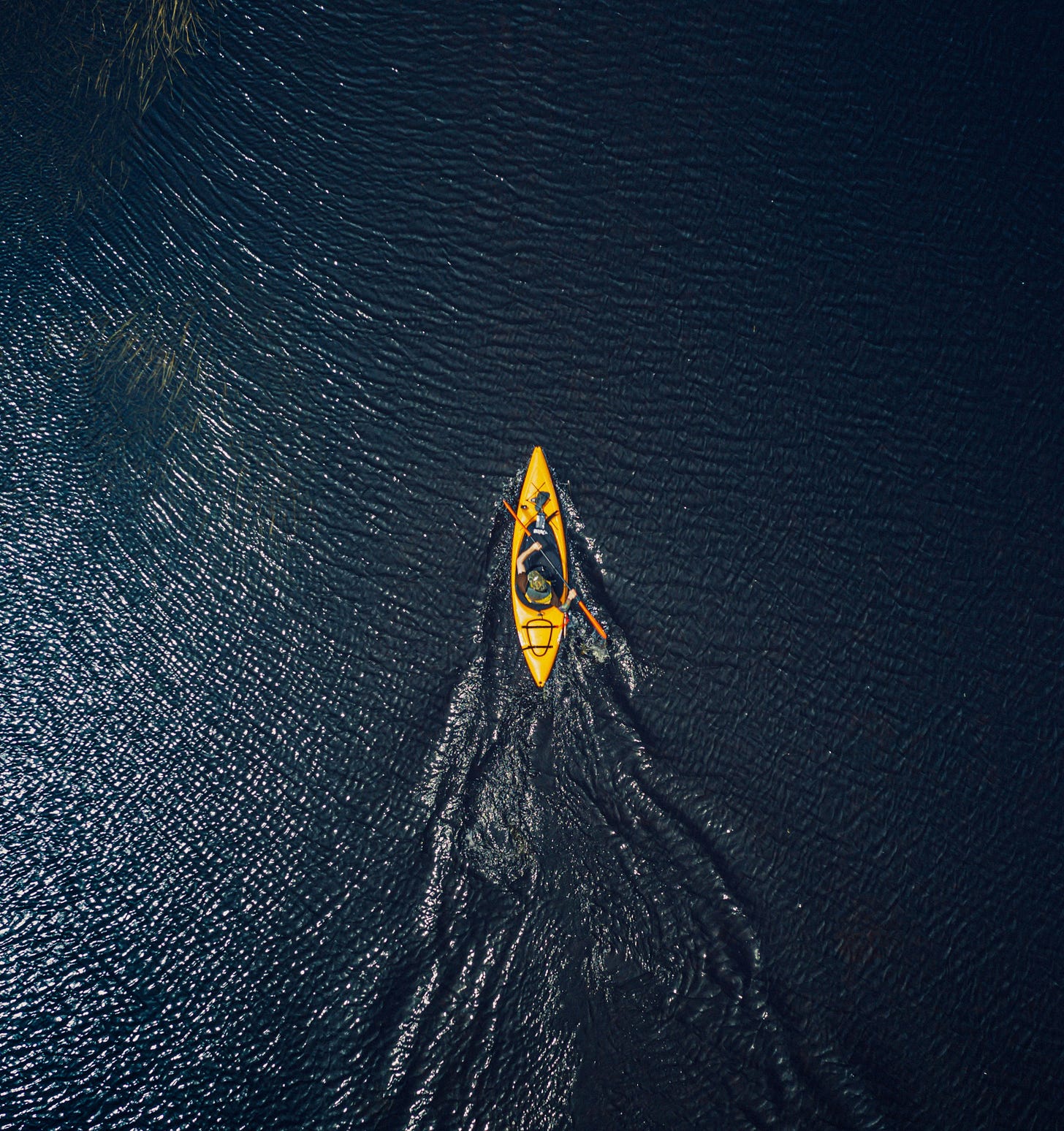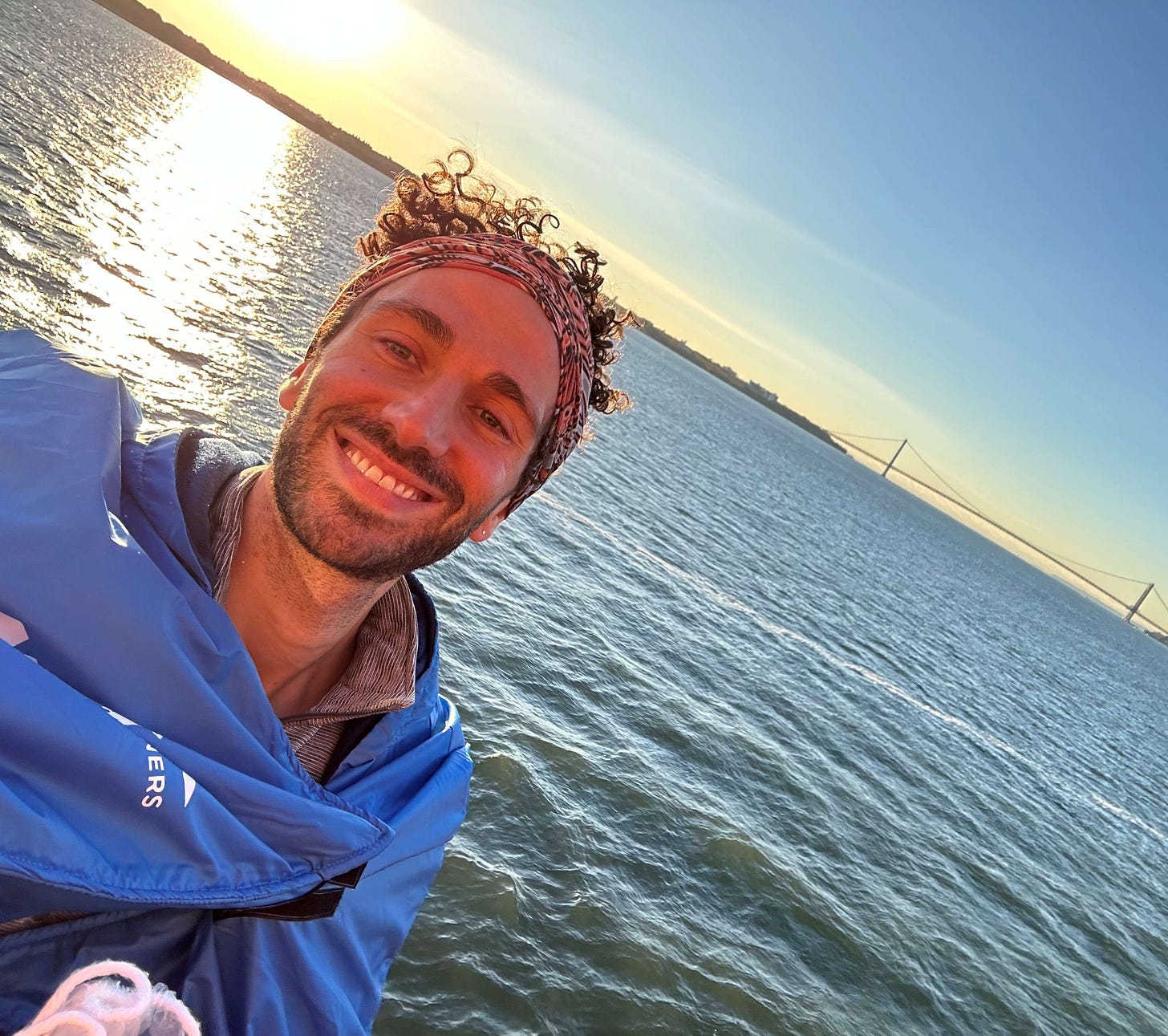This substack is for anyone who senses that if we hope to thrive, let alone survive, in this pivotal chapter in history, we need to grow up.
It’s for anyone interested in the intersections of dharma, meditation, spirituality, embodied ethics, AI, and technology.
Most importantly, it’s for anyone who, like me, aspires to be a kinder, wiser, more compassionate human being and help shape a more just and flourishing world.
If that sounds like you, I invite you to subscribe to my newsletter. Occasionally, I’ll visit your inbox to share personal reflections, practical guidance, and helpful resources to inspire life-affirming ways of thinking and being.

Why “Going Upstream?”
Systemic social injustice. Unconscionable violence toward living beings. Ecological destruction. An epidemic of loneliness. The erosion of truth and shared reality. The growing risk of catastrophe from technology beyond our control.
I believe that the various problems of the current polycrisis are downstream symptoms of a false, however compelling view of reality: that we exist as wholly separate from one another. Buddhism teaches that this one misguided view is so deeply entrenched “upstream” in consciousness that it gives rise to the habitual and systemic forms of harm that we inflict upon ourselves and others. So, in order to address the knot of entangled crises of our time and reorient to the world in wise and compassionate ways that affirm our common humanity and interdependence, much of the work to be done is “upstream” within our own hearts and minds.
Navigating this work invites us into the domain of spirituality—that realm of the human experience that bridges the particular with the universal, invites our innermost selves into communion with something beyond ourselves, and houses the juiciest question: “What matters most in this fleeting life?” It is the ground from which all our views, values, and intentions spring forth and shape how we relate to others and the world around us. Likewise, if we ever recognize that our current views, values, and intentions are not serving, it is through spiritual inquiry and cultivation that we may transform our hearts and minds to lead us somewhere better.
The good news, I believe, is that profound change is possible for us and for our world. The bad news is that this kind of radical change is not easy. If we want to transform, there’s no way around facing the deep-seated, often painful, ways in which we perpetuate cycles of harm toward ourselves and others. Likewise, when these harmful habits of relating entrench themselves within the communities, institutions, and cultural systems of which we are a part—then we need to challenge those, too. (I am especially concerned about how our current technology environment is complicating our ability to cultivate liberative ways of being—hence a major focus of this newsletter.)
The Buddha likened this countercultural path of individual and collective transformation to Going Upstream. Needless to say, it would be easier just to float downstream. It takes conscious effort to go the other way (especially at first). But we can do it.
If we’re going to navigate this broader moment of profound change and uncertainty with the wisdom and care that it requires, then it’s time for all of us to swim.
So, jump in. The water is warm, I promise.
A little about me
I began my own journey upstream over 15 years ago as a teenager, when coming very close to dying caused me to wake up to the wonder of having been alive in the first place. I became intensely curious about what’s possible in this human life, which soon led me to meditation. Turning my attention to my own mind for the first time, I realized I had no idea who I really was. I had spent so much of my life totally identified with the thoughts in my head, completely disconnected from what I was actually feeling in my body. The more intimate I became with my experience, the more I realized how much there was to discover—and I wanted to see how deep the rabbit hole went.
Then in 2017, two things happened that changed my life. One was falling in love with the Buddhadharma as the context and container for my own spiritual life and practice. The other was waking up to the fact that AI and other transformative technologies were coming way sooner than I previously thought—and they would dramatically change what it means to be human in ways I felt we were not prepared for.
After several years working in the startup world, I changed course in 2020 to explore how the Dharma and my desire to shape a more humane and liberatory technology culture might intersect. I left a company I co-founded for Divinity School to deepen my study and practice of Buddhism while diving more into the spiritual and ethical implications of AI. I also trained to become a chaplain and contemplative coach so I could hold space supporting others to explore the fullness of their human-spiritual experience and to grow in ways that lead to individual and collective flourishing.
Thank you for being here. I’m excited to be on this journey with you.




